第10章 LETTER 2(8)
Few men at that time looked forward enough to foresee the necessary consequences of the new constitution of the revenue,that was soon afterwards formed;nor of the method of funding that immediately took place;which,absurd as they are,have continued ever since,till it is become scarce possible to alter them.Few people,I say,foresaw how the creation of funds,and the multiplication of taxes,would increase yearly the power of the crown,and bring our liberties by a natural and necessary progression,into more real,though less apparent danger,than they were in before the revolution.The excessive ill husbandry practised from the very beginning of king William's reign,and which laid the foundations of all we feel and all we fear,was not the effect of ignorance,mistakes,or what we call chance,but of design and scheme in those who had the sway at that time.I am not so uncharitable,however,as to believe that they intended to bring upon their country all the mischiefs that we,who came after them,experience and apprehend.No,they saw the measures,they took singly,and unrelatively,or relatively alone to some immediate object.The notion of attaching men to the new government,by tempting them to embark their fortunes on the same bottom,was a reason of state to some:the notion of creating a new,that is,a moneyed interest,in opposition to the landed interest or as a balance to it,and of acquiring a superior influence in the city of London at least by the establishment of great corporations,was a reason of party to others:and I make no doubt that the opportunies of amassing immense estates by the management of funds,by trafficking in paper,and by all the arts of jobbing,was a reason of private interest to those who supported and improved this scheme of iniquity,if not to those who devised it.They looked no farther.Nay,we who came after them,and have long tasted the bitter fruits of the corruption they planted,were far from taking such an alarm at our distress and our danger,as they deserved;till the most remote and fatal effects of causes,laid by the last generation,was very near becoming an object of experience in this.Your lordship,I am sure,sees at once how much a due reflection on the passages of former times,as they stand recorded in the history of our own,and of other countries,would have deterred a free people from trusting the sole management of so great a revenue,and the sole nomination of those legions of officers employed in it,to their chief magistrate.There remained indeed no pretence for doing so,when once a salary was settled on the prince,and the public revenue was no longer in any sense his revenue,nor the public expense his expense.Give me leave to add,that it would have been,and would be still,more decent with regard to the prince,and less repugnant if not more conformable to the principles and practice too of our government,to take this power and influence from the prince,or to share it with him;than to exclude men from the privilege of representing their fellow-subjects who would choose them in parliament,purely because they are employed and trusted by the prince.
Your lordship sees,not only how much a due reflection upon the experience of other ages and countries would have pointed out national corruption,as the natural and necessary consequence of investing the crown with the management of so great a revenue;but also the loss of liberty,as the natural and necessary consequence of national corruption.
These two examples explain sufficiently what they are intended to explain.
It only remains therefore upon this head,to observe the difference between the two manners in which history supplies the defects of our own experience.
It shows us causes as in fact they were laid,with their immediate effects:
and it enables us to guess at future events.It can do no more,in the nature of things.My Lord Bacon,in his second book of the Advancement of Learning,having in his mind,I suppose,what Philo and Josephus asserted of Moses,affirms divine history to have this prerogative,that the narration may be before the fact as well as after.But since the ages of prophecy,as well as miracles,are past,we must content ourselves to guess at what will be,by what has been:we have no other means in our power,and history furnishes us with these.How we are to improve,and apply these means,as well as how we are to acquire them,shall be deduced more particularly in another letter.